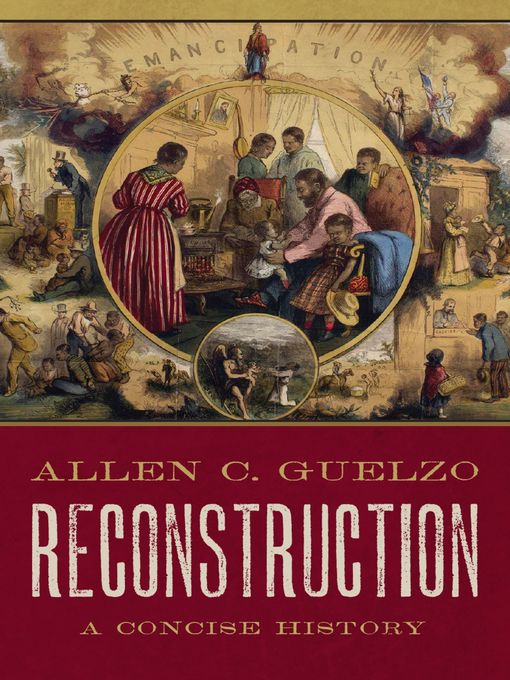
Reconstruction
A Concise History
- اطلاعات
- نقد و بررسی
- دیدگاه کاربران
نقد و بررسی

May 14, 2018
According to Civil War historian Guelzo’s concise and lucidly written study, the 12-year period popularly known as Reconstruction is the “ugly duckling of American history,” representing to many a tragically missed opportunity to establish racial equality. The project was innately challenging, he argues, raising difficult questions about the meaning of the Confederate states’ secession from the Union and the position of formerly enslaved people in the postbellum United States. Guelzo emphasizes that “not everything that should have been gained was gained in Reconstruction, but not everything was lost, either.” Following a chronological approach, he briefly sketches out the methods, including overt political resistance and the substitution of “freedman” for “slave” in state legal codes, by which white Southerners tried to subvert the federal government’s attempts to restructure Southern society to empower its black and poor white inhabitants. He concurs with Ulysses S. Grant that Reconstruction’s goals could only have been accomplished through a significantly longer military occupation of the South, but most Northerners felt this “was not in accordance with our institutions.” This reluctance resulted in strict limitations on the opportunities available to African-Americans. Guelzo’s short book is highly informative for readers seeking a better understanding of a short but tumultuous era that continues to influence race relations in the United States.

April 1, 2018
Eminent Civil War historian Guelzo examines the many reasons the Reconstruction era, "the ugly duckling of American history," ended in failure.Reconstruction, the brainchild of Abraham Lincoln and carried out--or not--by successors Andrew Johnson and Ulysses S. Grant, was meant to rebuild the rebellious Southern states and reincorporate them into the Union while altering their political structure to allow for the suffrage and citizens' rights of former slaves. From 1865 to 1877, that federal project ground down before achieving its ambitions, though parts were put in place. As Guelzo (Director, Civil War Era Studies/Gettysburg Coll.; Redeeming the Great Emancipator, 2016, etc.) notes, there's something in Reconstruction for nearly everyone to hate but also something powerful by way of an object lesson: Much of the South's "Lost Cause" myth was born in the time, as a pointed morality tale in resisting a tyranny in which whites and not blacks were disenfranchised and the extraordinary levels of graft and corruption allowed do-gooders on all sides to point to the doomed effort with I-told-you-so smugness. For all that, Reconstruction had to grapple with large issues: Were the states formerly in rebellion still states? Who was responsible for paying Confederate debts? In the end, almost everyone concerned with the enterprise failed to press Reconstruction to its presumed end. Consequently, former slaveholders were restored to positions of power and influence that in turn subjected former slaves to peonage, which, as one former slave put it, "is not the condition of really freemen." As seems so often the case in American history, African-Americans emerge the losers in Guelzo's narrative. As he writes, it was not just property and economic freedom that fled them, but "what Southern blacks lost in wholesale amounts was political agency." Thus the rise of Jim Crow laws and the spectacle, 150 years after the end of the war, of continued disenfranchisement and de facto segregation.Essential reading for the historically minded in a time of ongoing struggle for civil rights.
COPYRIGHT(2018) Kirkus Reviews, ALL RIGHTS RESERVED.




دیدگاه کاربران